Politics
US President Trump signs executive order overhauling US elections, mentions India example
Published
4 days agoon
By
Ekwutos Blog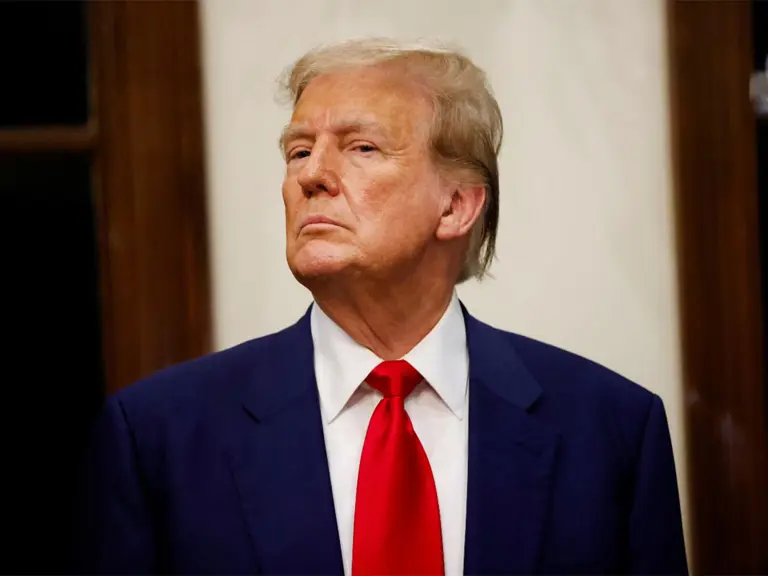
Washington [United States], March 26 (ANI): US President Donald Trump on Tuesday (local time) signed an executive order overhauling the US federal elections to “enforce basic and necessary election protections” employed by modern, developed, and developing nations.
Citing examples of India and some other nations, the US president stated that voters will now be required to show proof of citizenship during federal elections and restricted the time states are able to receive mail-in votes.
According to the statement in the order, countries like India and Brazil have linked voter identification to biometric databases for greater accuracy, while the US predominantly relies on self-attestation of citizenship, raising concerns over verification.
Moreover, it stated that in vote tabulation, Germany and Canada mandate paper ballots counted publicly by local officials–a method that minimises disputes–whereas the US employs a varied mix of voting systems, often leading to chain-of-custody issues.
The order also highlights further disparities, citing examples of Denmark and Sweden restricting mail-in voting to those unable to vote in person and rejecting late-arriving ballots regardless of postmark, while many US states have embraced widespread mail-in voting, with some accepting ballots without postmarks or those arriving well after Election Day.
“India and Brazil, for example, are tying voter identification to a biometric database, while the United States largely relies on self-attestation for citizenship. In tabulating votes, Germany and Canada require use of paper ballots, counted in public by local officials, which substantially reduces the number of disputes as compared to the American patchwork of voting methods that can lead to basic chain-of-custody problems,” the order read.
“Further, while countries like Denmark and Sweden sensibly limit mail-in voting to those unable to vote in person and do not count late-arriving votes regardless of the date of postmark, many American elections now feature mass voting by mail, with many officials accepting ballots without postmarks or those received well after Election Day,” the order added.
According to the order, the Election Assistance Commission is directed within 30 days to update its national mail voter registration form to require documentary proof of US citizenship–such as a passport, REAL ID-compliant identification, military ID, or other government-issued photo ID indicating citizenship–along with detailed recording of the document by state or local officials.
Moreover, to identify unqualified voters, the Secretary of Homeland Security must provide state and local officials free access to citizenship verification systems, while the Secretary of State will share relevant database information.
Federal agencies under the National Voter Registration Act are also tasked with verifying citizenship before distributing voter registration forms to public assistance enrollees, the order added. (ANI)
You may like
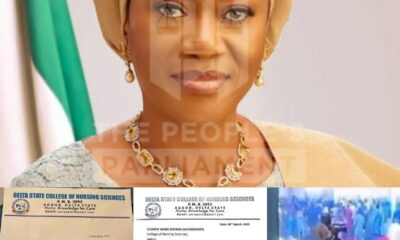

Na our mama be this o, we no get another one Stud£nt chorus ; Na your mama be this o eh And the Nursing school managem£nt issued query just because of the stud£nts chorus and allegedly have plans to punish them for what they did.
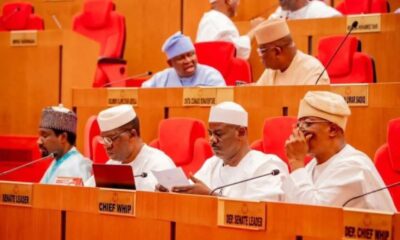

The senate has called on the federal government to take urgent action to address the rising cost of data services in the country.


Tariff uncertainties to keep gold prices in India between Rs 87-90K range in H1-2025: Report
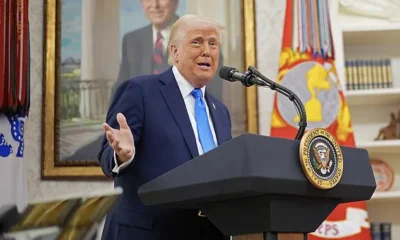

The telling sign Trump is walking back his public feud with Canada
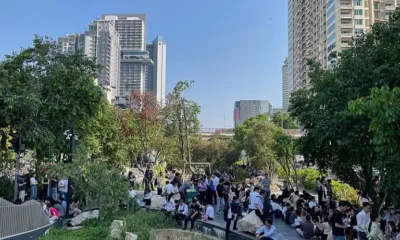

Is it safe to travel to Thailand and is Bangkok airport open? Latest advice after Myanmar earthquake
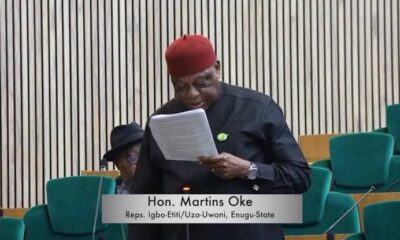

BREAKING: INEC Receives Petition to Recall Federal Lawmaker Martins Oke
Politics
The telling sign Trump is walking back his public feud with Canada
Published
20 hours agoon
March 29, 2025By
Ekwutos Blog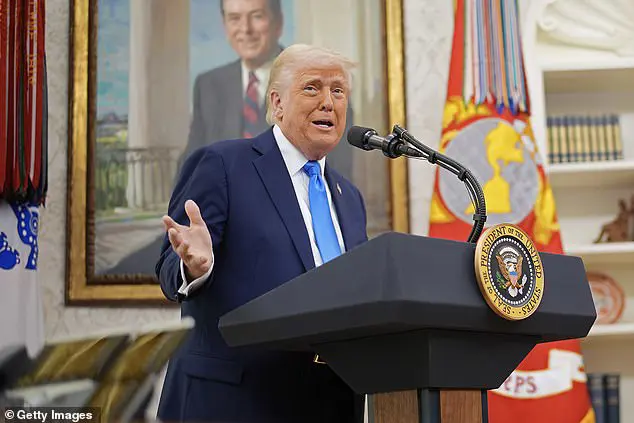
- READ MORE: Sign up for DailyMail.com’s daily political email
- PODCAST: A deep dive into the war plans group chat scandal, plus Trump hates his new portrait – on Welcome to MAGAland. Listen here.
President Donald Trump offered warm words against Canada‘s new prime minister even as the two sides continue to trade threats after Trump imposed new tariffs on auto imports.
Trump cited a ‘very good conversation’ with Canadian PM Mark Carney, who said Thursday that the ‘old relationship’ with the U.S. ‘is over.’
Trump on Friday morning wrote that the two men held an ‘extremely productive call’ and that ‘we agree on many things.’
That was a turnaround from many of his posts about former PM Justin Trudeau, who Trump frequently mocked as ‘governor’ amid his repeated public statements about making Canada the 51st state.
Trump didn’t even mention absorbing the U.S. northern neighbor when asked about the latest tariff spat Friday afternoon.
‘We had a very, very good talk,’ he said, citing his morning phone call with the prime minister.
‘He’s going through an election now, and we’ll see what happens. But we are – we have Liberation Day, as you know, on April 2,’ Trump said – using his phrase for the day he will impose ‘reciprocal’ tariffs on nations around the world.
‘And I’m not referring to Canada, but many countries have taken advantage of us, the likes of which nobody even thought was possible for many, many decades, for decades. And you know, that has to stop. We’re going to end up with a very good relationship with Canada and a lot of the other countries,’ Trump said.
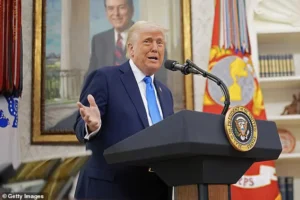
‘We’re going to end up with a very good relationship with Canada and a lot of the other countries,’ Trump said, hours after a phone call with the new Canadian PM. He issued an order to slap a 25% tariff on auto imports Wednesday
Those comments appeared to carve out Canada from taking ‘advantage’ of the U.S. That, too, is a change from previous rhetoric. Last week, Trump said: ‘Here’s my problem with Canada … Canada was meant to be the 51st state … We don’t need their cars. We don’t need their lumber … We don’t need their energy. We don’t need anything.’
Trump on Thursday slapped 25 percent tariffs on car and light truck imports. That prompted statements from Carney to hit back with trade actions. Trump said the tariffs won’t go into effect until April 2, in theory providing an opportunity to roll them back.
Speaking on a trip to Greenland, a territory that Trump said the U.S. must have, Vice President J.D. Vance was asked about how Americans should respond amid the anticipated spike in auto prices. ‘We have to have it,’ Trump said.
Vance, a former Ohio senator, used the same language Trump used when he berated Ukrainian President Volodymyr Zelensky in the Oval Office.
‘They just don’t have the cards,’ Vance said.
‘That means we’re going to fight back even against some of our friends and their unfair economic practices,’ he said.
Separating auto ‘imports’ from domestic vehicles is challenging, with parts going in both directions across the borders between the U.S., Canada, and Mexico in a continental supply chain.
The U.S. automakers lobbied against the tariffs and secured a one-month pause from Trump before his announcement this week.
‘The Prime Minister informed the President that his government will implement retaliatory tariffs to protect Canadian workers and our economy, following the announcement of additional U.S. trade actions on April 2, 2025,’ Carney’s office said in a statement.
Carney’s Liberal Party has seen its fortunes improve amid the trade clashes with Trump. Canadian hockey fans have even booed during the National Anthem during hockey games.
Politics
BREAKING: INEC Receives Petition to Recall Federal Lawmaker Martins Oke
Published
21 hours agoon
March 29, 2025By
Ekwutos Blog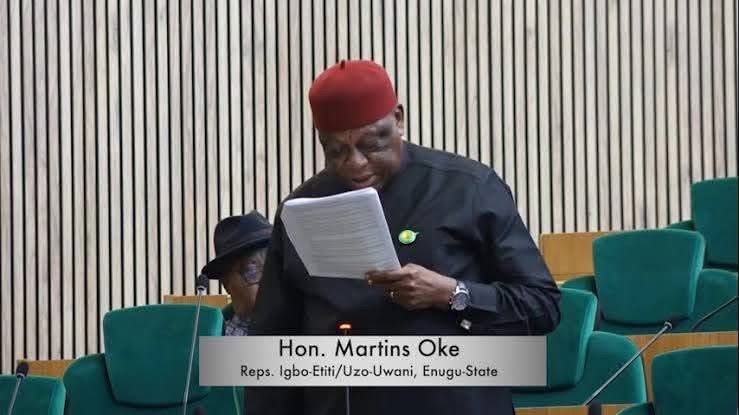
Voters in the Igbo-Etiti/Uzo-Uwani Federal Constituency of Enugu State have taken steps to recall their representative in the House of Representatives, Hon. Martins Oke.
Oke is a member of the Peoples Democratic Party (PDP).
A petition dated March 27, 2025, was submitted to the Chairman of the Independent National Electoral Commission (INEC), formally requesting Oke’s removal. The petition, signed by Mr. Ugwuagbo Emmanuel Chizoba, Mr. Clinton Ogbonna, Mr. Sabinus Amah, and Mr. Stephen Okenwa, accused the lawmaker of non-performance as the key reason for the recall move.
This comes amid a similar process against Kogi Central Senator, Natasha Akpoti-Uduaghan.
On Wednesday, INEC officially notified the suspended senator of her recall proceedings.
Politics
President Tinubu using state of emergency to intimidate governors – Amaechi
Published
21 hours agoon
March 29, 2025By
Ekwutos Blog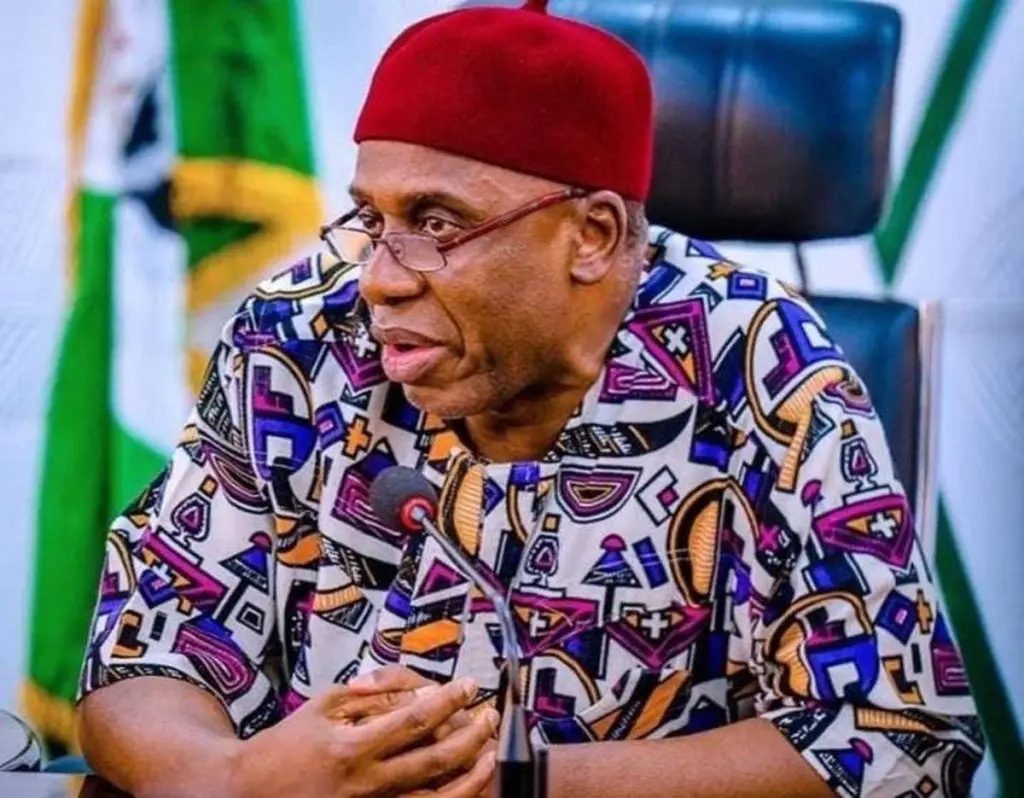
Former Rivers State Governor, Rotimi Amaechi, has accused President Bola Tinubu of using the state of emergency to intimidate governors who may oppose him in the 2027 general election.
Amaechi, speaking with an international media outlet, alleged that the crisis in Rivers State is rooted in a dispute over the sharing of the state’s funds.
He questioned the legality of the state of emergency, suggesting that President Tinubu’s actions are unconstitutional.
He proposed two solutions to address the issue: that People’s Democratic Party (PDP) governors should challenge the suspension in court and that a national protest should be organized to stop what he termed an “illegal suspension.”
Amaechi said, “The fight between the former governor (Wike) and the current governor (Fubara) is about sharing money. The President (Tinubu) acted outside of the constitution.”
The former Minister of Transportation also claimed that President Tinubu and the Minister of the Federal Capital Territory are the masterminds behind the political crisis in Rivers State.
Amaechi emphasized that, as the constitutional head of security, President Tinubu should not shift the blame to suspended Governor Siminalayi Fubara.

Na our mama be this o, we no get another one Stud£nt chorus ; Na your mama be this o eh And the Nursing school managem£nt issued query just because of the stud£nts chorus and allegedly have plans to punish them for what they did.

The senate has called on the federal government to take urgent action to address the rising cost of data services in the country.

Tariff uncertainties to keep gold prices in India between Rs 87-90K range in H1-2025: Report
Trending

 Trending5 months ago
Trending5 months agoNYA demands release of ‘abducted’ Imo chairman, preaches good governance
- Business5 months ago
US court acquits Air Peace boss, slams Mayfield $4000 fine

 Politics5 months ago
Politics5 months agoMexico’s new president causes concern just weeks before the US elections
- Entertainment5 months ago
Bobrisky transferred from Immigration to FCID, spends night behind bars
- Entertainment5 months ago
Bobrisky falls ill in police custody, rushed to hospital

 Politics5 months ago
Politics5 months agoRussia bans imports of agro-products from Kazakhstan after refusal to join BRICS

 Politics5 months ago
Politics5 months agoPutin invites 20 world leaders
- Politics1 year ago
Nigerian Senate passes Bill seeking the establishment of the South East Development Commission.

